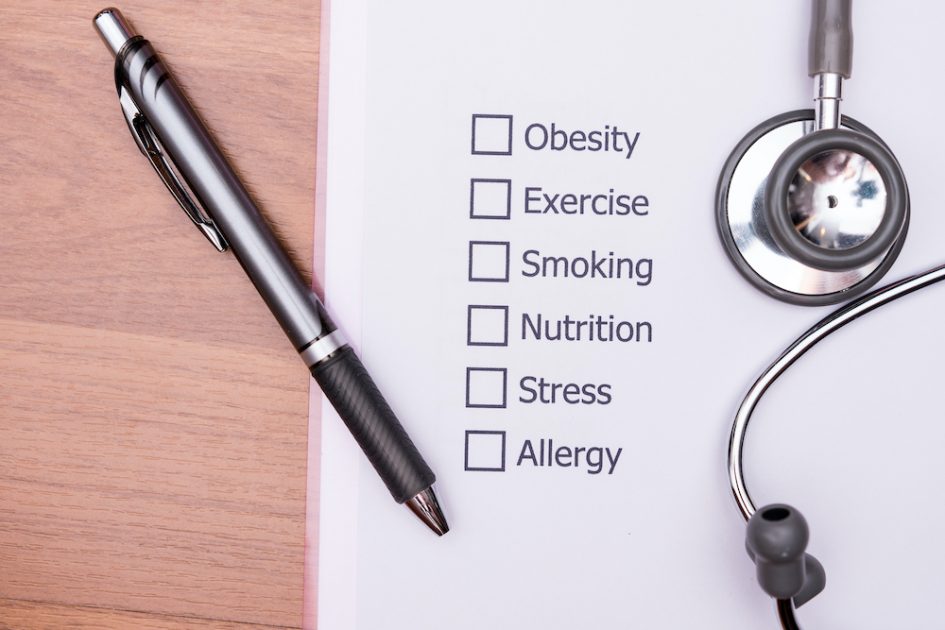How To Get The Best Life Insurance Rates If You’re Overweight

Being overweight or obese can make your life insurance premiums more expensive. That should come as no surprise, since being overweight puts you at risk of developing a wide range of health issues.
In this guide, we'll cover everything there is to know about getting life insurance for overweight people. We'll also answer some of the most frequently asked questions on the topic.
How Being Overweight Affects Your Life Insurance Rates
Life insurance is designed to pay out a death benefit to your loved ones if you pass away during the coverage period. So, insurers carefully assess your risk of dying while you're covered by their policy. People with high morbidity rates get charged more expensive premiums because they expose the insurance company to a higher level of risk.
Being overweight can cause you to pay $14 more than healthy individuals per year. Meanwhile, being obese can drive up the cost of your policy by $111.

Life Insurance Risk Classes
During a process called underwriting, insurers classify applicants into various risk classes. They'll usually charge higher life insurance rates to people they put in a poor health class.
Here are some of the usual categories available:
- Preferred Plus: Considered the best risk category, this is exclusively given to people who are in excellent health and with no history of medical issues. People who are overweight or obese are unlikely to receive this rating.
- Preferred: Individuals who are in good health but have minor health issues or have a complicated family history can fall within this category.
- Standard Plus: This is for people who are in average health or those with a bad family medical history.
- Standard: This is for individuals with manageable health issues, like high blood pressure. People who are overweight usually fall into this category.
- Substandard: This category is reserved for people who are in poor health. It is further subdivided into several table ratings based on the applicants’ age or illness. If you have a very high BMI, you may also be placed in this category.
Keep in mind that not all life insurance companies will put you in the same category depending on your height-to-weight ratio. If you get put in an unfavorable risk class by one insurer, you can try applying for a policy from a different company and see if they put you in a better category.
Special Weight-Related Considerations
Athletes who have a high BMI but a low body-fat percentage may still qualify for the best life insurance ratings. Some life insurance companies also make exceptions for people with a high chest-to-waist ratio even if they are overweight.
If you have a specific reason why you don't fall into the ideal range, notify the company when you apply for life insurance. They'll take this into account and confirm if you qualify for preferred ratings. Insurers also put your age into account, so you may still get a high rating if you're young even if you're a little overweight.
Why Is Being Overweight Considered High-Risk?
Having a high BMI put overweight people at risk of developing the following health conditions:
- Certain types of cancer
- Fatty liver disease
- High blood pressure
- Heart diseases and strokes
- Kidney disease
- Osteoarthritis
- Pregnancy complications
- Sleep apnea
- Type 2 diabetes
Since policies tend to last for decades or more, life insurance underwriters need to look at diseases you're prone to developing later in life. That's why they'll put you in a high-risk category if you have a particularly high BMI.

What's Considered To Be Overweight?
According to the Center for Disease Control and Prevention, 42.4% of American adults were considered obese in 2017-2018. This is a serious condition and it's more common than you might think – but how do life insurance companies classify people as overweight?
Insurers typically consider you overweight depending on your body-mass index (BMI). This is calculated by dividing your weight (in kilograms) by the square of height in meters.
Here are the body-mass index categories, plus their corresponding risk assessments:
| Classification | BMI | Risk Category |
| Underweight | 18.0 | Usually increases with decreasing weight |
| Normal Weight | 18.5 to 24.9 | Very low |
| Overweight | 25.0 to 29.9 | Normal to increased |
| Obese Class I | 30.0 to 34.9 | Elevated |
| Obese Class II | 35.0 to 39.9 | Elevated |
| Obese Class III | >40.0 | Very high risk |
Note that the ideal height-to-weight ratio varies depending on the insurance company. So, it's best to get life insurance quotes from various insurers to find the best rates.
Aside from your BMI, some life insurance companies have maximum weight limits per risk category. They usually follow a weight chart to determine if you fall under an ideal height and weight range.
Applying For A Policy While You're Overweight
Life insurance companies typically ask applicants to take a medical exam as part of their life insurance application. During this exam, a nurse or an attending physician will check the applicants' height and weight.
Alternatively, some applicants only need to answer a questionnaire about their overall state of health. Whether or not applicants need to take a medical exam will depend on the type of life insurance they're applying for.
Here are some of the usual questions:
- Current height/weight: Always give life insurance carriers the correct information about your current height and weight. It's good to measure yourself before writing down your answers.
- Significant weight changes in the past year: Even if you drop a few pounds within a few months, you might still not get a preferred health rating. Insurance companies will ask about sudden changes in your weight and consider this when reviewing your application. Rapid weight loss usually points to a serious medical condition, so sudden changes to your build may not work in your favor.
- Last doctor's appointment: Most insurance companies will also want to know if you've visited the doctor recently due to issues related to your weight.
- Mobility issues: People who are obese usually have medical or mobility issues related to their weight. This will lessen their chances of being placed in a preferred risk category.
Once the insurer knows your height and weight, they can compute your BMI and begin checking if your build falls within the acceptable range.

Tips For Getting Affordable Life Insurance Rates
There are several ways to ensure you get the best life insurance rates. Here are some tips you can follow when you apply for life insurance coverage:
Prepare For Your Life Insurance Medical Exam
People who are borderline overweight or obese should consider briefly fasting before their medical exam. This ensures that they're not carrying any extra pounds when they step on the weighing scale.
Sustain Weight Loss
If you managed to lose a significant amount of weight, you'll need to maintain it for the next 12 months before the life insurance company will take it into consideration. They'll want to know that this is a lasting weight change and not something you did to get affordable premiums.
Note that some companies can give you "half-credit" based on recent weight loss. For example, if you weighed 200 pounds a few months ago but now weigh 160 pounds, they may consider your weight as 180 pounds instead.
Seek Help From An Agency
To get an affordable policy, it's best to seek help from an independent agency. They can help you get life insurance quotes from various companies so you can easily find the one that offers you the best insurance rates. They may even help you find a company that specializes in offering policies to obese people.
Reapply After Losing Weight
If you have an existing policy but have lost significant weight since you applied, you may ask your insurer for a reconsideration. Note that this process may involve retaking the medical exam.
If your exam shows that you now fall within an acceptable weight category, then your insurance company may consider charging you cheaper premiums in the future.
Settle For A Policy With A Short Term Period
If you plan to lose weight in the next year, you can opt to get an annual renewable term life insurance plan in the meantime. This policy will only be valid for one year.
After it expires, you can apply for another policy and get better rates. This is usually easier than asking your insurer to recompute premiums for a whole life insurance plan.

FAQs On Life Insurance For Overweight Individuals
Having a less-than-ideal BMI can make getting a life insurance policy a little more complicated. In this section, we'll answer some of the most frequently asked questions about insurance for overweight people.
Should you take an exam if you're overweight?
Yes. In general, getting a fully underwritten life insurance policy (with a paramedical exam) is still more affordable than buying a simplified-issue or guaranteed-issue policy (with no exam).
Note that some life insurance companies may specifically ask you to take a paramedical exam for a simplified-issue policy. This can happen when you put in a very high number when answering questions about your height and weight.
Can my application be denied because of my weight?
It's unlikely that you'll get denied life insurance due to your weight alone. Usually, only people who have chronic health conditions related to their weight can be denied a life insurance policy.
However, if you have a BMI of over 46, you might get denied life insurance coverage. Ask your life insurance agent for advice on getting a policy if this is your situation.
What if I lie about my weight?
Lying to a life insurer can cause your policy to be canceled. Your loved ones may also be denied the death benefit if you pass away.
There are several ways that insurers use to verify the information you provide them. If you're applying for a fully underwritten life insurance policy, then your insurer will still find out about your real height/weight during the paramedical exam.
However, individuals who are applying for simplified-issue or guaranteed-issue life insurance won't have to go through the same process. That doesn't mean that your life insurance company won't have any other means to check your height/weight, however. The life insurance company can check your physician records to confirm any information you've disclosed.
The bottom line is, you need to be honest with your life insurance company when disclosing information about your health and overall physical fitness.
What if I lost weight from surgical methods?
If you lost weight from surgical methods, getting coverage might get a little more tricky. Having a recent major operation can cause your application to get postponed or denied altogether. You'll likely be asked to wait until you've fully recovered from your surgery before applying for a policy.
What if I have medical conditions related to my weight?
Some life insurance companies may still put you in a good risk category provided that your condition is manageable. A lot of overweight people are being treated for high blood pressure or high cholesterol, but get affordable coverage.
If you have a more chronic illness like diabetes, you should take a step further. Try to look for an independent agent who specializes in helping people with your condition. You should also be prepared to apply for multiple companies just to make sure you get the best rates.
What are my options if I'm denied life insurance?
If you fail to qualify for a traditional life insurance policy, you might still find alternatives. Here are some of your options:
- Guaranteed-issue life insurance: Anyone who applies for guaranteed-issue life insurance policies will get accepted. However, these policies usually come with low coverage amounts (up to $25,000). They also come with a waiting period of 2 years. Your beneficiaries won't receive a death benefit if you pass away before this waiting period is over.
- Simplified-issue life insurance: This is best for seniors or people with chronic health conditions. Instead of taking a physical exam, you'll only be asked to answer a few questions about your health. This type of policy has a higher death benefit compared to guaranteed-issue policies and provides coverage as soon as the policy is in force. The downside is that your application may be denied based on your answers.
- Group life insurance coverage: If you're currently employed, you might get life insurance coverage through your employer. This type of policy does not require underwriting and will enable you to get coverage regardless of your current state of health.
While these types of insurance won't give you the same level of protection as traditional policies, it's still better to have them. The proceeds from your life insurance policy can still help your loved ones cover your funeral expenses and pay off your outstanding debts.

Final Thoughts
Being overweight doesn't have to stop you from getting an affordable policy. Insurance companies differ in how much they charge people who are considered to be overweight and some of them are more lenient than others. So, as long as you shop around and work with a reliable agent, you'll be able to find the best rates.
If you need more information regarding life insurance for overweight people, get in touch with Wesley Insurance, LLC. We'll help you get quotes from the best life insurance companies so you can compare rates and get affordable coverage.